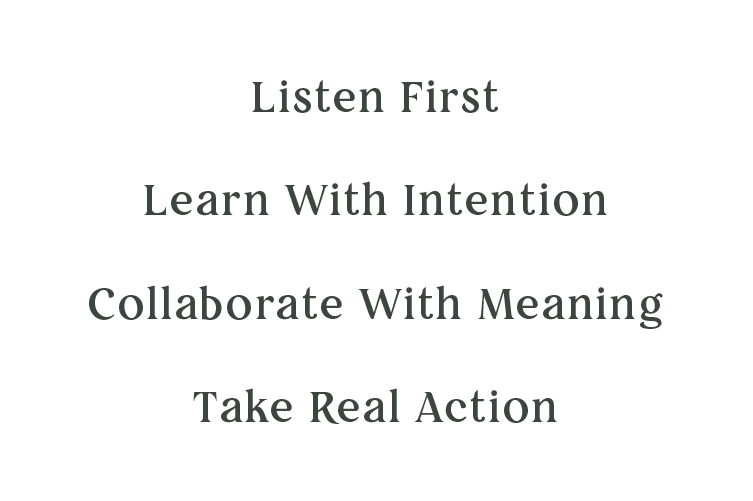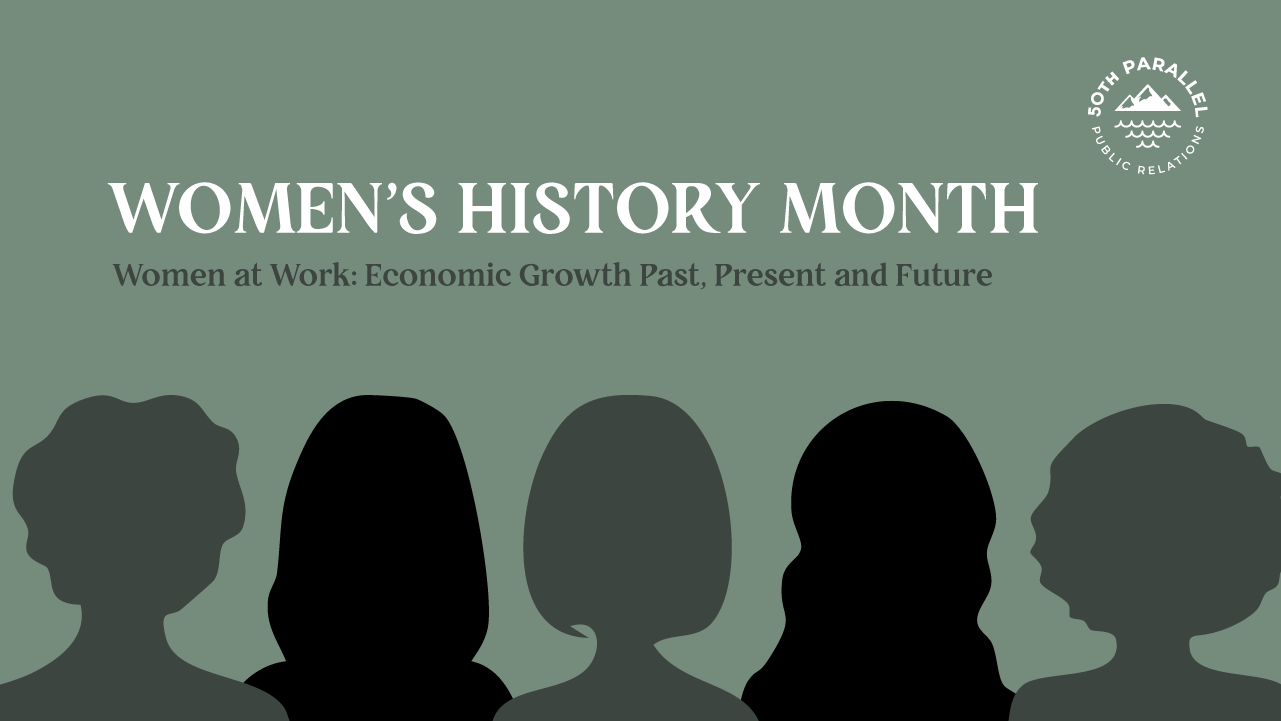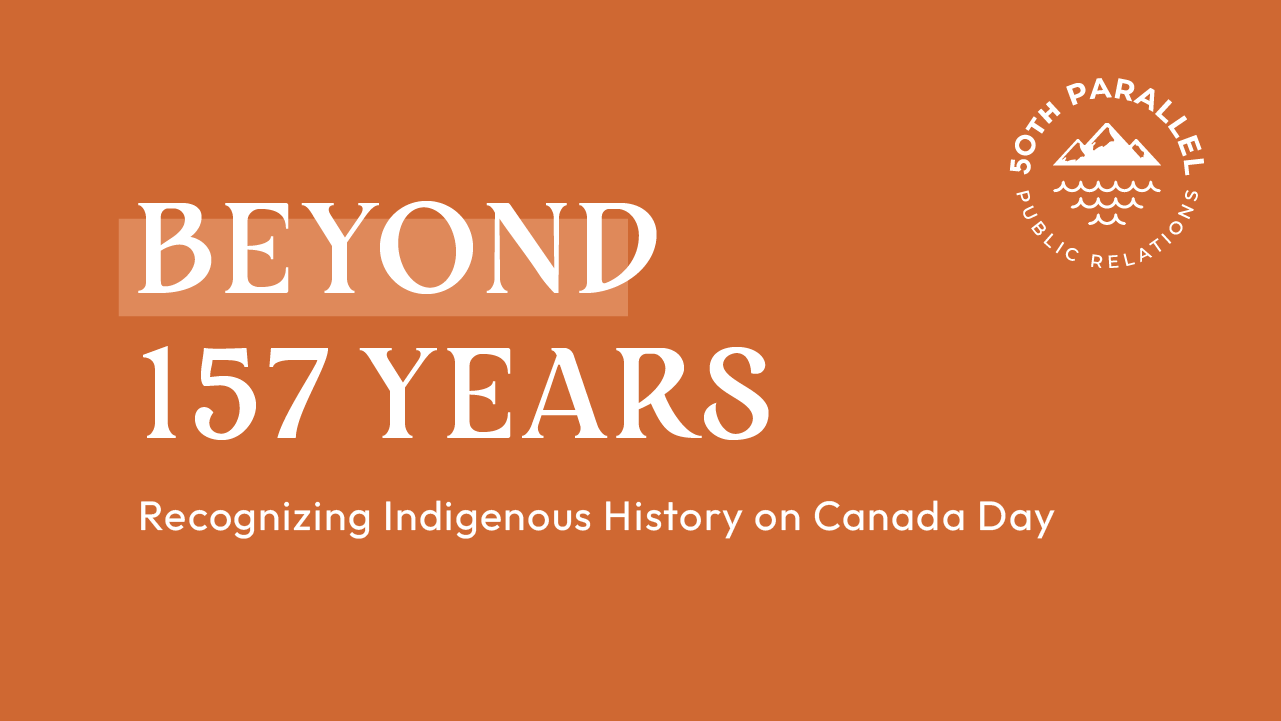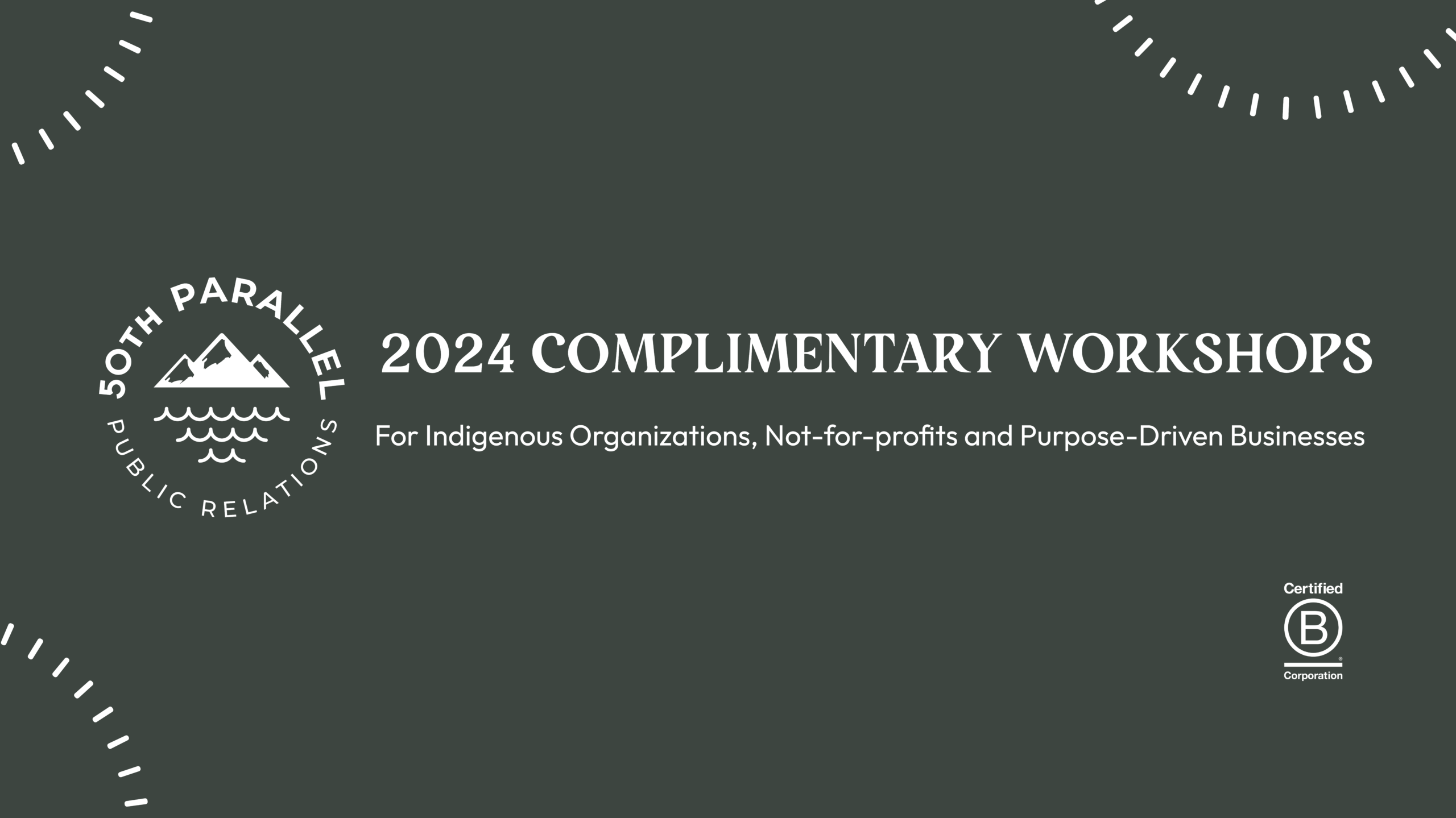Our founder, Naz, and client services manager, Hannah, attended the International Association of Business Communicators conference in Chicago from June 23 to 26.
This four-day conference was a unique opportunity for communicators worldwide to share lessons from their expertise, learn from others in the industry and, most importantly, build new relationships with like-minded professionals, creating a supportive global network.
Naz spoke at the event during her session, We Communicate: A Look At Co-Creating with Historically Marginalized Communities, during which she shared our experience using communication to collaborate with and uplift marginalized groups.
This was a deeply impactful session, and we wanted to share some of the key points that were discussed with the attendees.

At 50th Parallel, we take a human approach to our work and understand our place when it comes to working alongside communities. We engage with clients by fostering relationships rooted in openness, respect and an eagerness to learn, regardless of our past experiences.
Each client has their own values, protocols and ways of being. No two clients are alike and a template approach simply doesn’t work. That’s why at 50th Parallel, we:

During the session Naz built upon three of these guiding principles in detail, showing their relevance and connection to the work we do.

It is essential to hold space to listen and reflect on the needs, values and cultural protocols of a historically marginalized community. This type of work isn’t instantaneous. It takes time and Naz spoke to three key things to remember during this step.
- Taking the time to listen and learn, question your assumptions and grow in understanding of another’s culture and history will have a lasting impact on the relationships you plan to build.
- Decolonizing your understanding can, at times, be challenging and uncomfortable. In a society built on colonial foundations, this reframing can feel like it goes against the grain. That doesn’t mean you’re doing it wrong!
- This work is not always linear. It can take time, but keep going and be patient with yourself.

Learning will never stop. There is always more to learn and discover. It will take time and success will come when practicing the following:
- Be open.
- Accept that you don’t know it all. You can’t reach cultural humility if you present yourself as knowing all the answers.
- Ask questions and do your own learning.

Deep understanding supports and strengthens relationships. When you have done the work to listen, learn and ask questions this is when you create the foundation for taking real action. Naz shared a few considerations when moving forward:
- Develop a diversity, equity and inclusion (DEI) or reconciliation action plan for your organization.
- Work with cultural consultants or DEI partners
- Update RFPs, policies and initiatives focusing on your commitment to working alongside historically marginalized groups.
- Training, capacity building and mentorship
- Develop a CSR commitment that looks to donate to community organizations and advocacy groups annually.

We don’t assume to know, but we are here to listen, learn and co-create. As communications professionals, we practice just, inclusive and additive communications when we create narratives that center equity and follow the leadership of Black, Indigenous and other underrepresented communities.
There is still much work to be done. This work is slow, intentional and ongoing. There is no set of rules to follow, but only lessons to be learned. We recognize the ongoing need to practice openness, listening, humility and teachability to nurture fruitful relationships with marginalized communities. This is precedent-setting work that can only be done if we can walk alongside together, free of judgment and bias.
As part of our efforts to get more people involved in practicing allyship with marginalized communities, we put together a list of things you can do:
- Consume content created by marginalized communities
- Take courses to be educated on Indigenous history and culture
- Hire and promote talent from marginalized communities!
- Donate to or volunteer with organizations working for these communities
- Support businesses owned by marginalized communities and individuals
- Write and talk about your experiences with marginalized communities so that we can empower others to do the same.
















